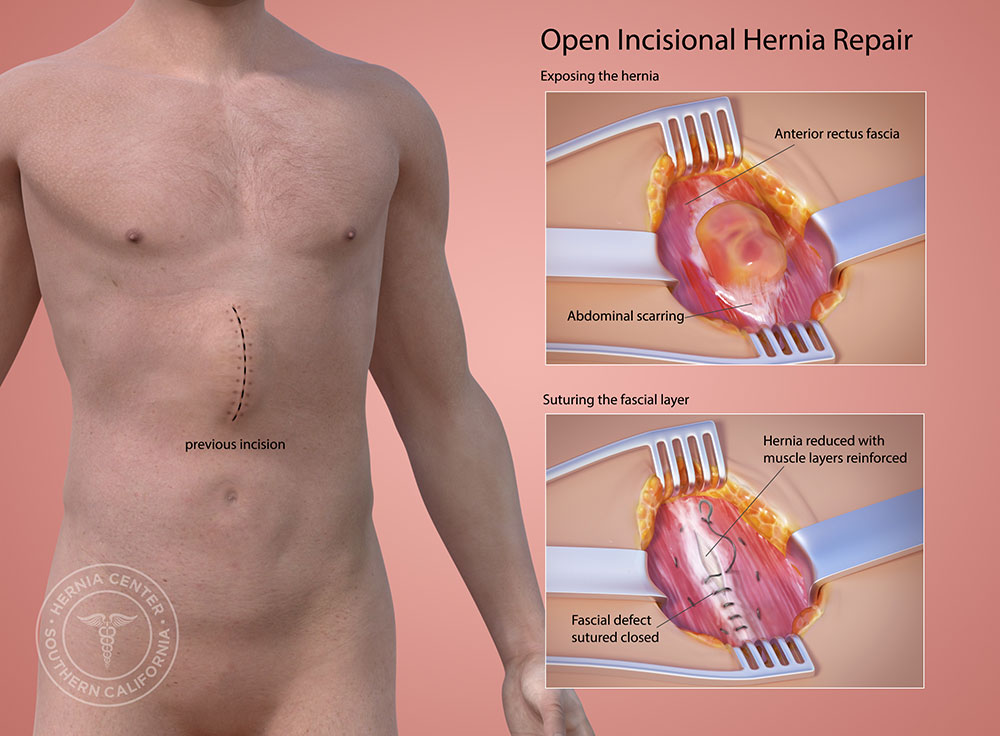Incisional Hernia Repair in Taipei
Search and Compare the Best Clinics and Doctors at the Lowest Prices for Incisional Hernia Repair in Taipei

Find the best clinics for Incisional Hernia Repair in Taipei
No pricing info available
Morocco offers the best prices Worldwide
Price: $ 520
From 128 verified reviews
ashley kauffman, 21 September 2020
At NTU hospital they are constantly processing high volumes of patients efficiently and with a happy attitude. I was in and out for my follow-up in less than 30 mins. Moreover, my previous recent experience in the ER department was very positive. All of the doctors and many of the staff can speak English. What’s more, they offer online appointment booking in English. The best place in Taiwan to go for any serious health concerns. The attitude of the staff is impressive considering how busy it gets.
From 136 verified reviews
Nana Hong, 18 September 2020
皮膚科彭家盈醫師問診親切仔細,五顆星是給她的
WHY US?
At Medijump, we're making medical easy. You can search, compare, discuss, and book your medical all in one place. We open the door to the best medical providers worldwide, saving you time and energy along the way, and it's all for FREE, no hidden fees, and no price markups guaranteed. So what are you waiting for?

Free

Best Price

Widest Selection

Risk-Free
What you need to know about Incisional Hernia Repair in Taipei

An incisional hernia may occur along or near surgical scars in the abdomen. They usually do not cause any issues, but they may get bigger over time. However, when the incisional hernia is getting larger or causing problems, they need to be operated on with a procedure known as incisional hernia repair.
What does a Incisional Hernia Repair Procedure Involve?
There are two different techniques for performing incisional hernia repair, open surgery, and laparoscopic surgery, both are performed under general anesthetic. In open surgery, your surgeon cuts the abdomen open and closes the gap that the hernia protrudes through from the outside, and then a mesh is placed on it to strengthen it. In laparoscopic surgery, your surgeon makes several small incisions to insert surgical instruments and a tiny tube with a camera attached to it (laparoscope).
How Long Should I Stay in Taipei for a Incisional Hernia Repair Procedure?
You are usually required to stay in the hospital for one to three days, but in some cases, you may be able to leave the hospital on the same day. However, you are not allowed to travel long-distance right after you have been discharged. You will need to stay in Taipei for around 7 to 14 days or until your surgeon says you can fly home. During your stay, you will attend follow-up hospital checkups so your doctor can monitor your condition and remove the stitches.
What's the Recovery Time for Incisional Hernia Repair Procedures in Taipei?
The complete recovery for an incisional hernia repair may take around three to six weeks, but you should be able to go back to work two weeks after the surgery. If you have laparoscopic surgery, the recovery time is typically shorter.
What sort of Aftercare is Required for Incisional Hernia Repair Procedures in Taipei?
You will need to keep the surgery site clean, but avoid pools, baths, and hot tubs. Make sure to do some gentle exercises as it will help with the healing process, but make sure to avoid any strenuous activities for around 4 to 6 weeks. Your surgeon may give you a diet plan and ensure to follow all instructions.
What's the Success Rate of Incisional Hernia Repair Procedures in Taipei?
The success rate of incisional hernia repair is 95% and the rate of recurrence is as low as 3.4%. All complications associated with the surgery are minor and usually require no hospital admission. The risks and side effects include infection, injuries in the abdominal cavity, and pain.
Are there Alternatives to Incisional Hernia Repair Procedures in Taipei?
The alternatives to incisional hernia repair are home care measures, which can only be done if the incisional hernia is not causing any issues. The alternatives include maintaining a healthy weight, reducing abdominal pressure, eating healthy, and controlling diabetes.
What Should You Expect Before and After the Procedure
Incisional hernia can be unpleasant and cause serious symptoms. After you have undergone an incisional hernia repair, you should not feel any symptoms and you can get back to normal living.
Whilst the information presented here has been accurately sourced and verified by a medical professional for its accuracy, it is still advised to consult with your doctor before pursuing a medical treatment at one of the listed medical providers
No Time?
Tell us what you're looking for and we'll reachout to the top clinics all at once
Enquire Now

Popular Procedures in Taipei
Prices Start From $42

Prices Start From $4

Prices Start From $260

Prices Start From $520

Prices Start From $714

Recommended Medical Centers in Taipei for Incisional Hernia Repair

- Interpreter services
- Translation service
- Religious facilities
- Medical records transfer
- Medical travel insurance
- Health insurance coordination
- TV in the room
- Safe in the room
- Phone in the room
- Private rooms for patients available

- Interpreter services
- Translation service
- Religious facilities
- Medical records transfer
- Medical travel insurance
- Health insurance coordination
- TV in the room
- Safe in the room
- Phone in the room
- Private rooms for patients available

- Interpreter services
- Translation service
- Religious facilities
- Medical records transfer
- Medical travel insurance
- Health insurance coordination
- TV in the room
- Safe in the room
- Phone in the room
- Private rooms for patients available

- Interpreter services
- Translation service
- Religious facilities
- Medical records transfer
- Medical travel insurance
- Health insurance coordination
- TV in the room
- Safe in the room
- Phone in the room
- Private rooms for patients available

- Interpreter services
- Translation service
- Religious facilities
- Medical records transfer
- Medical travel insurance
- Health insurance coordination
- TV in the room
- Safe in the room
- Phone in the room
- Private rooms for patients available

- Interpreter services
- Translation service
- Religious facilities
- Medical records transfer
- Medical travel insurance
- Health insurance coordination
- TV in the room
- Safe in the room
- Phone in the room
- Private rooms for patients available

- Interpreter services
- Translation service
- Religious facilities
- Medical records transfer
- Medical travel insurance
- Health insurance coordination
- TV in the room
- Safe in the room
- Phone in the room
- Private rooms for patients available

- Interpreter services
- Translation service
- Religious facilities
- Medical records transfer
- Medical travel insurance
- Health insurance coordination
- TV in the room
- Safe in the room
- Phone in the room
- Private rooms for patients available

- Interpreter services
- Translation service
- Religious facilities
- Medical records transfer
- Medical travel insurance
- Health insurance coordination
- TV in the room
- Safe in the room
- Phone in the room
- Private rooms for patients available

- Interpreter services
- Translation service
- Religious facilities
- Medical records transfer
- Medical travel insurance
- Health insurance coordination
- TV in the room
- Safe in the room
- Phone in the room
- Private rooms for patients available
Incisional Hernia Repair in and around Taipei
About Taipei
Taipei City is the capital and one of the special municipalities of Taiwan. It is located in the northern part of the island in a basin between the Central Mountains and the Yangming Mountains. Characterized by friendly people and safe streets, this city is one of the most fascinating places to visit. It has an amazing history, delicious food, and a blend of Chinese culture with a fusion of Japanese, American, and Southeast Asian influences. While most visitors normally visit the city to indulge in its culture and go sightseeing, more and more people are traveling here to have medical treatment, due to the high-quality medical standards, professional teams, high-tech medical equipment, and reasonable prices.
Popular Parts of Taipei
Zhongshan and Datong are two of the most popular parts of Taipei. Zhongshan was once the financial and international business center of the city, and today, it still has plenty of hotels and eateries. Visitors can also find numerous excellent museums, Taipei Expo Park, and Taipei’s version of the London Eye called Miramar. Datong is one of the oldest parts of the city. It is known to be home to Taipei’s finest temples, such as the Confucius Temple, Bao’an Temple, and Xiahai City God Temple. Those who love shopping should go to Da’an, an important commercial and residential area in the city. It houses some of the city’s classiest shopping areas, as well as the most sophisticated bars and a beautiful park. Another popular area is Shilin, which is where the National Palace Museum is located.
Transport in Taipei
The primary international airport in Taipei is the Taiwan Taoyuan International Airport. It connects the city with various major cities around the globe, such as New York, Frankfurt, Tokyo, and Paris. Some budget airlines are operating from this airport, including AirAsia and Eastar Jet. To journey around, Taipei there is a very efficient, safe, and clean Mass Rapid Transit (MRT) system, which is called Metro Taipei. It has an extensive network and will get you to numerous areas around the city. Buses and taxis are also available. Buses are efficient and affordable, while taxis are the most flexible mode of transport.
Visas in Taipei
Citizens of 66 countries, including all EU countries, Australia, and the US, do not need a visa to visit Taipei for up to 90 days. Visa on arrival is available for nationals of Turkey. Taiwan’s Ministry of Foreign Affairs also provides an eVisa program for several countries, including the UAE and India.
Weather in Taipei
Summer (June to August) can be extremely hot and humid, with an average temperature of 27°C to 30°C. It is also the wet season and typhoons are a real possibility, rain decreases, and the temperature drops during autumn. Winter (December to February) is cold and dry, while spring is pleasant.
Additional Info
- Local Currency: The New Taiwanese Dollar (TWD) is the local currency and 1 USD is worth about 30 TWD.
- Money & Payments: ATMs are available in many parts of the city. Credit cards are accepted in hotels and upscale restaurants. It would be wise to always carry some cash. Tipping is not mandatory.
- Local Language: Mandarin Chinese is the official language and many people can speak English well.
- Local Culture and Religion: Buddhism and Taoism are the biggest religions, followed by Christianity, Yiguandao, and Tiandism.
- Public Holidays: Chinese New Year is the most important public holiday, which is celebrated for a week during February.
Popular Searches
- Plastic Surgery in Thailand
- Dental Implants in Thailand
- Hair Transplant in Thailand
- Breast Augmentation Thailand
- Gastric Sleeve in Thailand
- Gender Reassignment Surgery in Thailand
- Laser Hair Removal in Bangkok
- Botox in Bangkok
- Dermatology in Bangkok
- Breast Augmentation in Bangkok
- Coolsculpting in Bangkok
- Veneers in Turkey
- Hair Transplant in Turkey
- Rhinoplasty in Turkey
- Stem Cell Therapy in Mexico
- Rhinoplasty in Mexico
- Liposuction in Mexico
- Coolsculpting in Tijuana
- Rhinoplasty in Korea
- Scar Removal in Korea
- Gastric Sleeve in Turkey
- Bone Marrow Transplant in India
- Invisalign in Malaysia
- Plastic Surgery in the Dominican Republic
- Tummy Tuck in the Dominican Republic
- Plastic and Cosmetic Surgery in Poland
- Rhinoplasty in Poland
- Hair Implant in Poland
- Dental Implants in Poland
- IVF in Turkey

